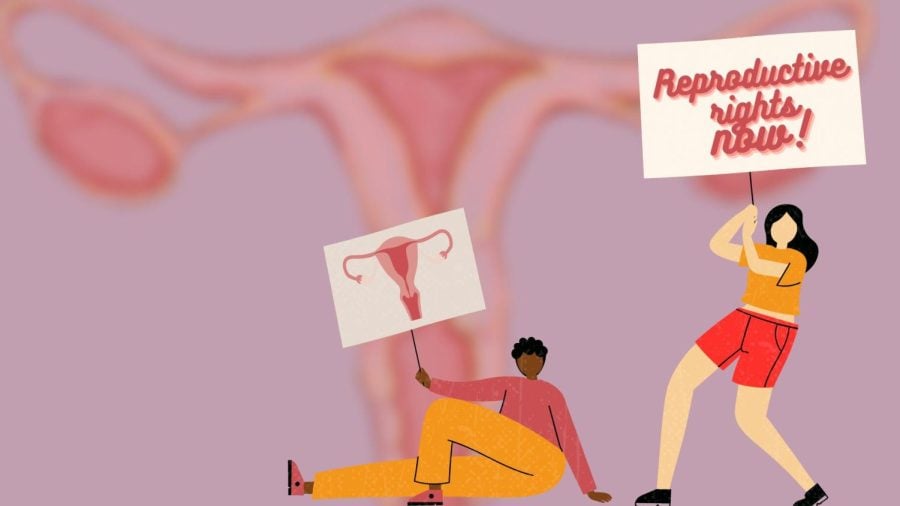NU College Feminists hosts reproductive justice panel discussing intersections of justice
Illustration by Jessica Ma and Kristen Axtman
Chicago activists spoke about their journeys in reproductive justice activism.
May 17, 2023
Northwestern College Feminists hosted a conversation with three Chicago reproductive rights activists Tuesday about reproductive justice and their personal journeys in activism. The talk, which incorporated virtual and in person components, was moderated by Sekile Nzinga, NU’s former director of the Women’s Center.
At the start of the talk, Nzinga framed reproductive justice as having the right to choose whether to have children or not, and to raise children in healthy environments.
Lakeesha Harris, executive director of birth justice organization Chicago Volunteer Doulas, then drew connections between various kinds of reproductive justice.
“From the onset, the right to not have a child — that’s birth justice,” she said. “To make sure that those children are thriving and living in a place that’s free from violence — that’s land justice.”
Each activist shared the reasons they became involved in fighting for reproductive justice.
Chicago activist land steward darien hunter golston (Communication ’16), who uses ey/em/eir/d pronouns, described reproductive justice as a “grounded political home” that ey continues to return to. As a young person in Arizona, which golston said had few resources for young people, ey had conversations with friends about interpersonal and domestic violence.
Now, golston’s ultimate goal is to be a part of a cooperatively organized birth center for Black queer and transgender people that encourages liberated relationships with land.
Chicago Abortion Fund Deputy Director Qudsiyyah Shariyf said she wound up completing an abortion-based internship during college, which led them to seek other interested students on the University of Chicago campus as an undergraduate student.
The group intended to leverage their positions as UChicago students, who had access to funds and resources from the University, to support local reproductive justice organizations like their current organization.
Shariyf has also been trained as a doula — a person who supports others while they give birth in an non-hospital environment — and is interested in birth work.
“Especially in an abortion justice space, it’s important to talk about the reproductive justice framework and not get pigeonholed as we so often are at least in like mainstream media and conversations into just talking about abortion,” Shariyf said.
Reproductive justice has played a role in Harris’ life since before she had a name for it, she said, when she advocated for herself as a 16-year-old pregnant teenager.
Harris said she did not know what her needs were until she was pregnant.
“(I evolved) into the advocate that I needed for myself, going on to become a CNA and doula and sex worker and understanding the policies and practices of a political system and a (carceral) system that seeks to lock my Black ass up every time they can,” she said.
Harris is currently working to develop the South Side Birth Center, which will be the first birthing center on the South Side and aims to address inequities for Black people who are able to give birth.
Historically, she said doulas have been critical for the Black community, since many looking to give birth could not trust hospitals because of the racist medical system.
However, Harris said there has been a recent “shift in reality” in which Black and brown people no longer have access to that expertise. She said it is still “taboo” to center Black lives, even when Black pregnant people die at six times the rate of their white counterparts due to childbirth complications in the Chicago area.
For Weinberg junior and NU College Feminists President Andie Tipton, the event was a chance for attendees to learn about the origins of reproductive justice.
“I don’t have a huge personal connection (to reproductive justice) besides the fact that I’m a woman and I’m a feminist, but I feel like that’s enough,” Tipton said. “It’s just really frustrating to see it constantly be disrespected by the government and the state.”
Email: [email protected]
Twitter: @kaavya_butaney
Related Stories:
— Activist Stacy Erenberg centers healing in reproductive justice at NU
— NU students, faculty gather for fireside chat on reproductive justice
— ‘Taking Action for Reproductive Justice’ to level up community activism


